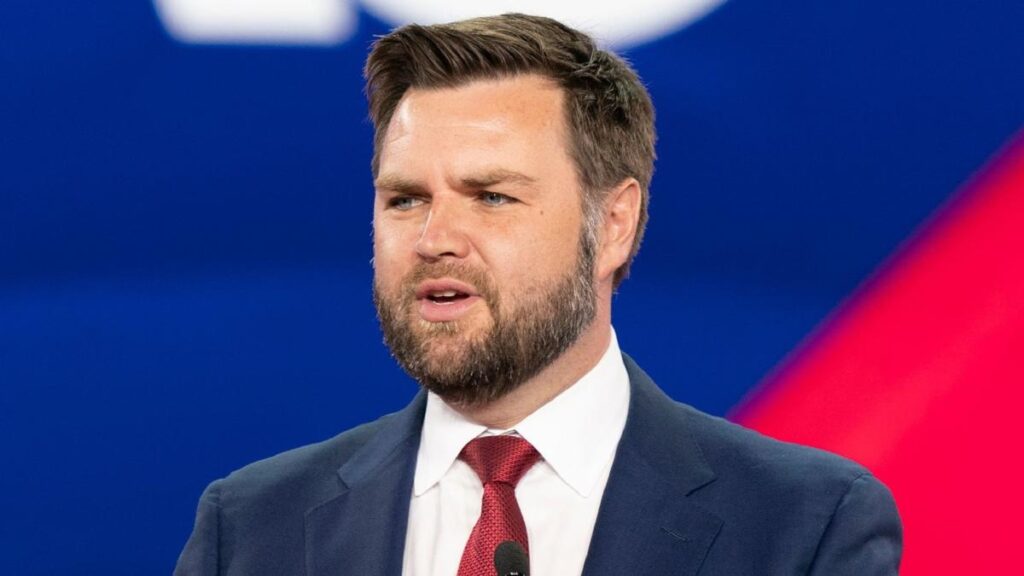Lev Ladin / Pacific Press / Shutterstock.com
On July 15, Newsweek magazine oped, “J.D. Vance’s appointment as vice president cements Trump’s promise to revitalize America’s middle class.” Vance’s policy proposals and pet talking points reported in the magazine all touched on the same concept: the return of good-paying, hands-on jobs that prioritize on-the-job learning and certification over expensive college degrees.
For you: Here’s how much salary you need to actually earn $100,000 in each state
Let’s find out: 7 reasons why you should consider a financial advisor even if you’re not wealthy
“Vance is committed to building a capitalism that benefits all Americans at all skill levels,” said Henry Olsen, a senior fellow at the Ethics and Public Policy Center. “That focus ensures that the benefits of innovation and growth are not just those who use their heads on laptops to work, but also those who use their hands and feet to work.”
Here are some other ways the economic policies Vance supports could help the middle class.
Wealthy people know the best financial secrets. Learn how to replicate them.
Vance could steer policy toward investing in domestic blue-collar jobs.
Much of Vance’s appeal lies in his familiarity with working-class Americans who played a major role in electing Donald Trump as president in 2016.
CNBC reported at the end of 2023 that while blue-collar workers such as miners, construction workers and loggers are in high demand and seeing wages rise, outlooks for IT workers and software professionals are declining, “leading to a narrowing of the income gap.”
But that wasn’t enough for Vance, who wants to encourage, pressure and influence U.S.-based companies to stop outsourcing after what the Bureau of Labor Statistics says is four decades of declining blue-collar wages and the loss of millions of manufacturing jobs.
“Trump’s approach includes tax incentives for companies that bring jobs back to the U.S. and increased infrastructure spending, which could create more stable, higher-paying jobs,” said Denis Shirshkov, a finance professor and economic policy at the City University of New York.
Read more: Here’s how much you need to earn to be in the top 1% in all 50 states
He backs President Trump’s trade war against Chinese manufacturing giants
Trump has pledged to escalate the trade war with China if re-elected, using tariffs to raise prices of cheap Chinese imports and make domestically produced goods cheaper, making them more attractive to both U.S. and foreign buyers.
Newsweek reports that Vance fully supports President Trump’s tough China policy, saying it is essential to lift America’s working class firmly into the middle class.
The story continues
“J.D. Vance emphasizes the importance of economic nationalism and restoring middle-class jobs through protectionist policies and reducing reliance on foreign manufacturing,” said Shirshkov, who is also head of growth at real estate investment firm GoSamaa.
China is home to about 1.4 billion people, more than four times the population of the United States, and 200 million Chinese are expected to reach upper-middle class status by next year, according to global consulting firm McKinsey. Vance doesn’t believe current trade dynamics will allow the U.S. middle class and China’s upper class to grow at the same time.
“Together, we will protect the wages of American workers and stop the Chinese Communist Party from building a middle class at the expense of the American people,” Vance said at the Republican National Convention.
Vance wants to devalue the dollar to boost American exports.
The dollar is exceptionally strong compared to most other currencies in the world, allowing Americans to buy more of the imported goods that dominate American consumer culture.
Vance believes this trend will encourage China to import large quantities of cheap manufactured goods into the United States, making it impossible for domestic producers to compete with foreign rivals or create good-paying jobs at home.
“‘Devalue it,'” Vance told Politico. [the dollar]Of course, ‘cheaper’ is a scary word, but what it actually means is that American exports will be cheaper, and that’s important.”
He links rising addiction rates to the decline of the middle class.
Vance’s public health interests, which include “opposition to abortion access and transgender health care,” are among his most controversial platforms, according to Roll Call, but one pillar of his public health platform has broad bipartisan support: the idea that addiction, especially that caused by the opioid epidemic, is a direct threat to middle-class America.
According to Roll Call, Vance “draws inspiration from his background as the son of an opioid addict, an experience he chronicles in his autobiography, ‘Hillbilly Elegy.'” For him, the issue ties directly to his philosophy that blue-collar work is a ticket to middle-class prosperity.
“J.D. Vance’s focus on revitalizing American manufacturing and tackling the opioid crisis can have a significant economic impact for ordinary Americans,” said Shirshkov. “Advocating for policies that promote domestic manufacturing can spur job creation in the sector and increase household incomes in manufacturing-dependent regions. Additionally, tackling the opioid crisis can reduce health care costs and improve labor market participation rates by ensuring a healthier workforce.”
Editor’s note on election coverage: GOBankingRates is nonpartisan and strives to provide objective coverage of all aspects of the economy and balanced reporting on politically focused financial stories. More coverage on this topic can be found at GOBankingRates.com.
More from GOBankingRates
This article originally appeared on GOBankingRates.com: 4 Economic Policies from Trump’s VP Nominee JD Vance Could Help the Middle Class

